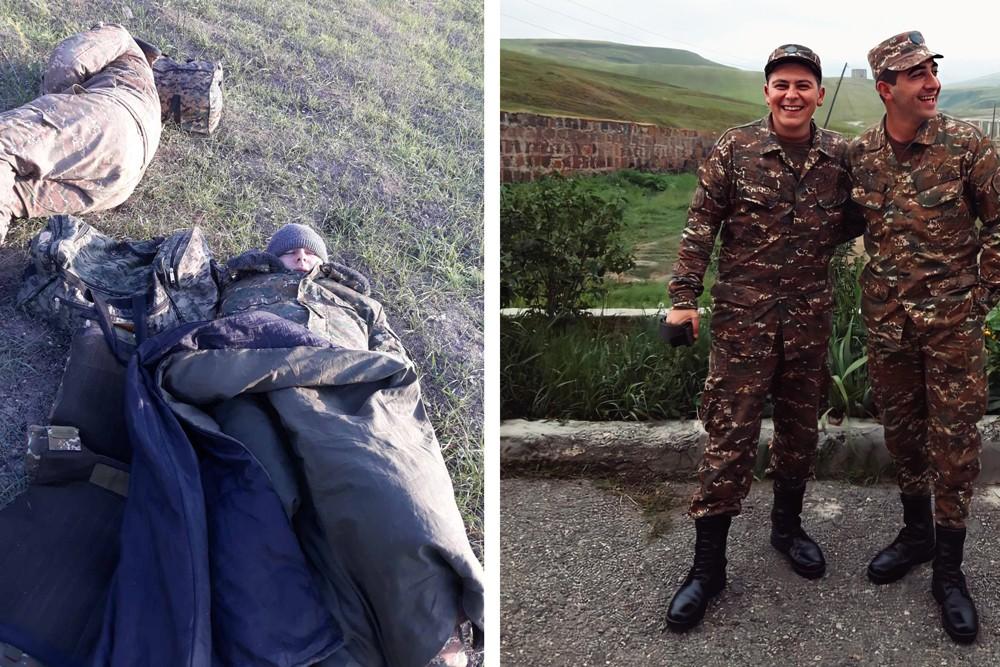
Rescuing the Wounded: 19-Year-Old Classmates Saved Lives in Artsakh War
The two medical assistants, no matter how much they try, cannot forget what they witnessed during recent war in Artsakh.
They served as "feldshers" attached to an ambulance crew during the war. Soldiers called it the “Cross Car”. (A feldsher is a medical or surgical practitioner without full professional qualifications or status in some east European countries, especially Russia.)
They saw the war up close and in person, saving numerous lives while being shelled and targeted by Azerbaijani drones.
“You were college friends," I ask.
"Now, also combat buddies," says Hakob, a smile of pride on his face. The smile assumes a note of seriousness. Tigran's hand is still bandaged, a consequence of the war.
Hakob Gasparyan and Tigran Babayan, both 19, were students at Yerevan State Medical University’s college. In 2020, after studying for four years, they joined the Artsakh Defense Army as feldsher. Tigran says while he could have waited to be conscripted six months later, he applied to the military commissariat to be drafted. Both wanted to serve together and signed a three-year contract with the the Ministry of Defense.
The war started 16 days after they signed on.
"When the war started, we had already been dispatched to our positions. We heard voices one morning. One of the boys came and said the war had broken out. I saw some explosions in the distance. We got dressed quickly and received the first news about the wounded. An ambulance immediately followed us. I don't know if it was a drone or an artillery shell. An explosion rang out behind the ambulance,” says Hakob.
Tigran says they were instructed to collect the wounded. They were that the enemy had blown up the ambulance. He, the other aide, Hamlet, and the driver were about to get in the car when Hakob’s vehicle approached. Hakob got out. The boys were surprised to see that the medical staff were safe.
When the war started, Tigran says he had no idea what was happening at first.
“I was at our house with one of our two feldshers. Hakob woke up and asked about the noises we heard. Since I had been at the front, I told him not to worry and to go back to sleep. A powerful explosion woke us. I approached the window. The military unit’s siren was wailing. I ran towards ambulance, dressing along the way. We got to the vehicle minutes later and drove to the front,” Tigran recalls.
Their perceptions of war changed immediately on the battlefield. It was no longer one side shooting at the other. There were artillery shells exploding on one side and drone hits on the other. The town of Hadrut was under attack. Helping the wounded was a shocking introduction to war for the newly recruited medical aides.
“One of the first events that left a deep impression on me was when a person died in our hands. It was hard for both of us. We were both crying. We had conflicting thoughts at the time. We questioned why we should go home and not that person,” says Tigran, as if he is experiencing the horror yet again.
On the first day of the war, Hakob’s father volunteered to be with his son. They were so tired and busy that day that when the father opened the door of Hakob’s ambulance, the son did not recognize his father.
"It was my father's thirth war. We saw each other on the night of the 27th. He told me to focus, that my main job was to assist the others,” Hakob says. The father and son made a pact that if one died the other would return home.
Tigran says that unlike his friend, he did not let any of his family members join him.
Hakob says that while the presence of his father gave him strength, it also hindered him because he was responsible for both.
The boys say that while the rules of war generally prohibit the targeting of ambulances, they were warned of what the enemy was capable of. The most vulnerable on the battlefield were the ambulances. If soldiers could take refuge in the trenches, medical personnel were out in the open, attending to the wounded.
“We transported the wounded in the vehicle, treating them along the way. That was difficult. We had to tell the driver to drive a little slower, pointing here and there. At the same time, we had to watch out for drones strikes, ready to jump out at any moment,” says Hakob.
There were days when there were many wounded. The workload only allowed the aides to eat at night.
"What did you think about every time you went to help the wounded?” I ask.
“I always thought about calling home after removing the wounded. To say everything was OK. I kept thinking that all this would end, that we should at least go home and see our parents," Tigran says.
“Every time I got in the vehicle, I was the first to pray. I put my hope in God. I wanted to get there as soon as possible. To get that wounded guy to the hospital so that they could help him," says Hakob.
“Were you afraid?” I ask.
"The fear cam later, when you thought about what had just happened,” says Hakob.
“In those cases, to be honest, the fear would intrude. You have to be ready," adds Tigran.
On October 25, while taking out the wounded, Tigran’s ambulance was targeted by an Azerbaijani combat drone.
“The force threw me out. I lost my finger. The other feldsher helped me. My knee was hit. He stopped the bleeding. Fortunately, an ambulance had been sent from Jabrayil. There was no doctor aboard. "Hamlet dragged me into the car and transported me to Martuni," says Tigran. Fortunately, no one in the vehicle was killed.
Tigran was taken from Martuni to the hospital in Stepanakert. He was operated on and transferred to the Yerevan University Hospital on October 26. While the Stepanakert physicians concluded that two more fingers needed to be amputated, the Yerevan doctors were able to save them.
Hakob says that after Tigran was wounded, they were given the order to retreat. By that time, the enemy had taken Jabrayil, Fizuli and Hadrut.
After Hadrut, Hakob and his medical unit were dispatched to Tchartar. Here, too, they found themselves in a face-to-face shootout.
“My driver and I were going to collect the wounded. Villagers told us the Turks were ahead of us. My driver said we had to go, that we couldn’t leave our wounded to the Turks. We arrived, opened the car doors, and saw they were alive. My driver and I were caught in a shootout. A shot destroyed the driver’s finger. I was also slightly wounded. My driver was not able to drive. The wounded were taken to the car. Two people were injured. We found ourselves in a blockade. The guys came to our aid. That's how we were able to find someone to drive the car. The wheels were completely pierced. We managed to get the car out of there," says Hakob.
Hakob says an Azerbaijani sniper shot whizzed overhead when he bent down to reload his machine gun. It was a matter of seconds. His bullets had run out.
Wounded, Hakob continued to treat the others. On the way back, Armenian villagers fired on the vehicle, thinking it was an Azerbaijani one. Hakob says it was a miracle they survived, given the car’s thin body.
All the wounded, including Hakob, were taken to the Stepanakert hospital in a villager’s car. He didn’t stay there long. Hakob asked his father to take him back to the front. That’s what they did. After the ceasefire, Hakob and his father remained at their combat positions for several days.
Tigran says the war was not a defeat for him. If there were people who consciously died, it was not a defeat. He says the cause of the defeat should be looked for elsewhere.
Hakob continues Tigran's thoughts. He says the enemy soldiers looked defeated when they approached. While in Hadrut, they managed to capture an enemy radio, allowing them to overhear Azerbaijani troop movements. The reports saved Armenian lives.
Hakob says they heard reports of panic in the enemy ranks and that Azerbaijani military police were threatening to execute those retreating. The radio is now in the Yerevan Medical University’s museum/
Hakob and Tigran point to the bravery of the 18-year-old Armenian conscripts. Even wounded, some refused to leave their posts. Hakob says they had to be coaxed into leaving and taken to the hospital. Tigran adds that there were cases, when Armenian conscripts, even realizing the danger, remained at their combat positions even after the retreat order.
Looking back, the boys say that they do not want to remember what they experienced.
"There were boys with whom we talked about what they wanted to achieve in life. An hour later, we saw their dead bodies. The psychological impact hits you later when you realize what’s happened. One day, you’re sharing bread with a guy and the next day he’s dead or missing. ou realize you could be one of them as well,” says Hakob.
Days after our conversation, Hakob had to return to Artsakh to continue his medical service.
Tigran says that he can no longer serve in military medicine but will continue his medical studies.
We take a final glance at the photos taken before and after the war. Hakob shows one of them, where he and Tigran are laughing. They say it is a photo recalling more carefree days.
The war was a costly experience for both. Something the two classmates could never have imagined.
Video by Narek Aleksanyan
 Videos
Videos Photos
Photos
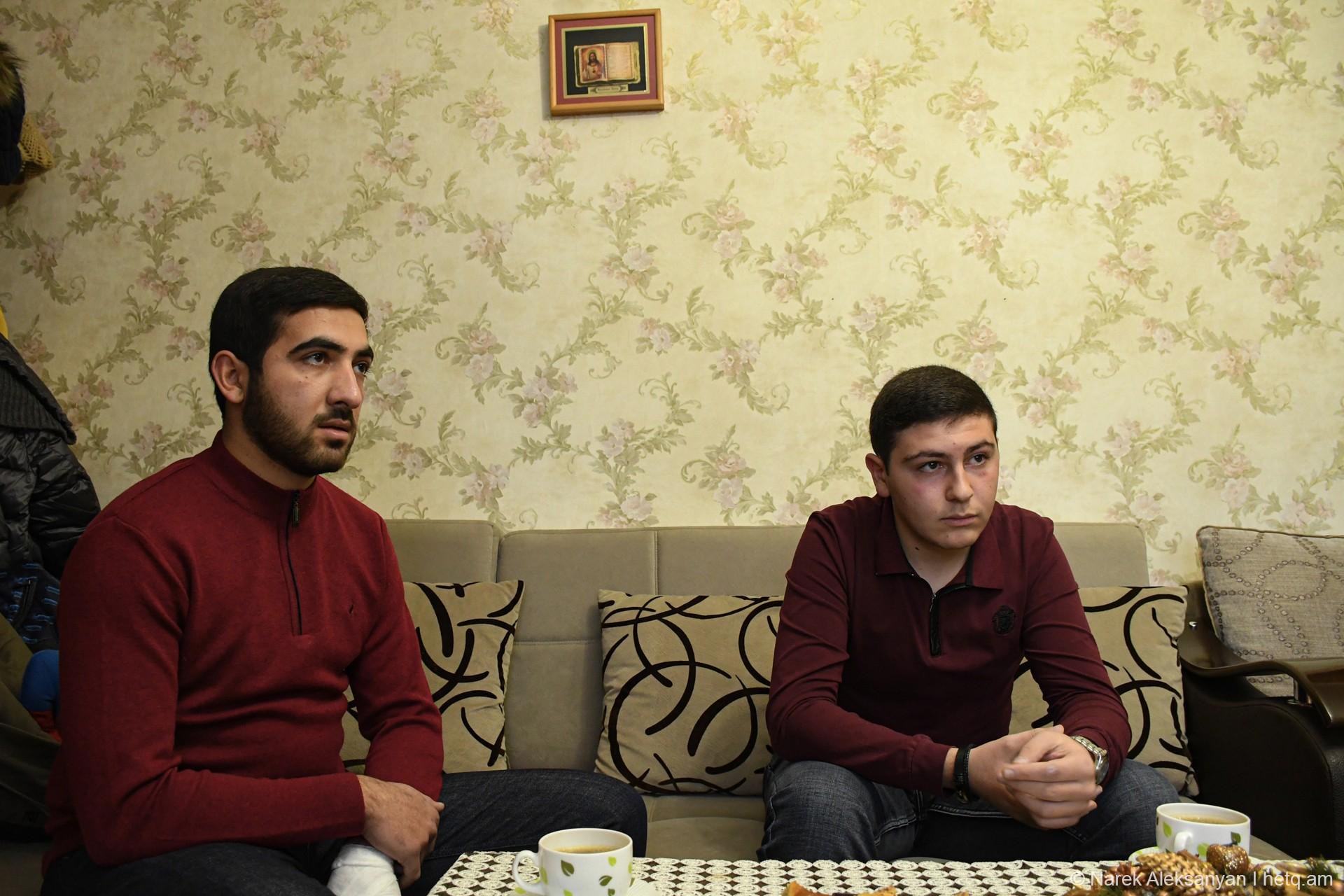
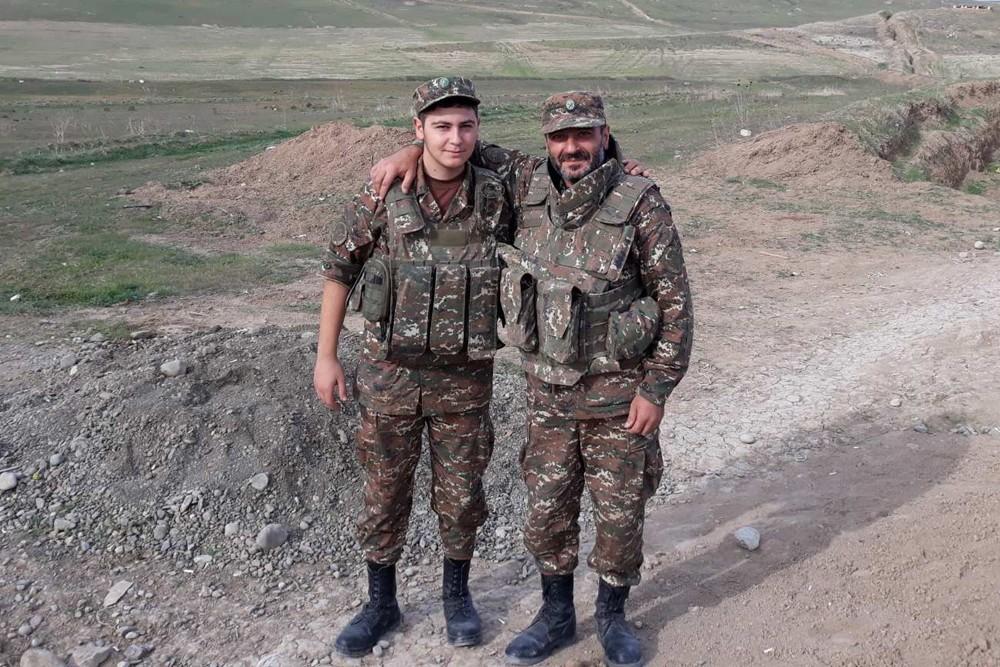
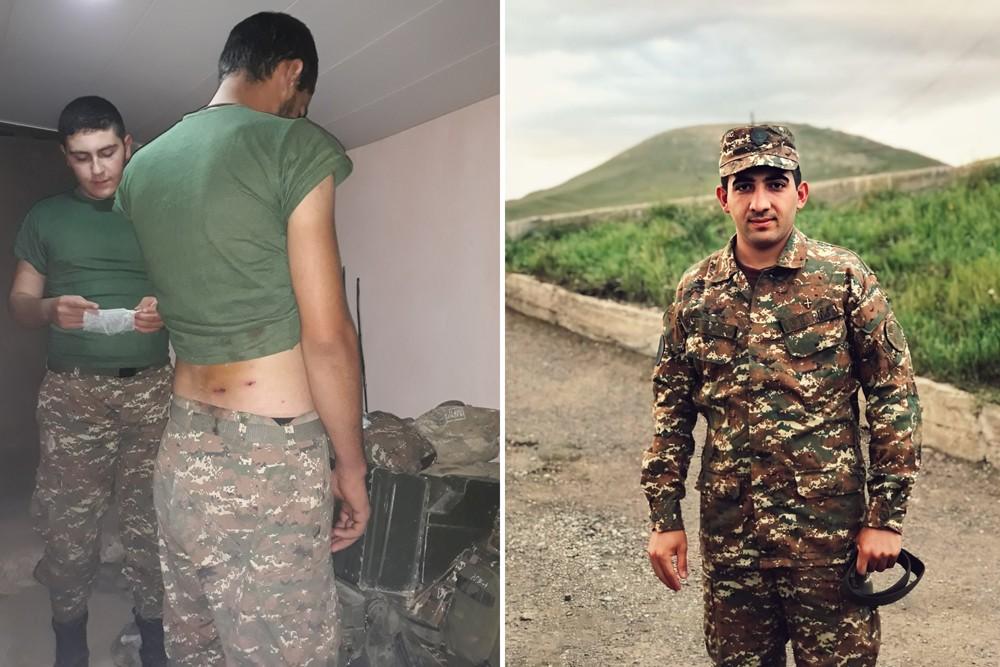
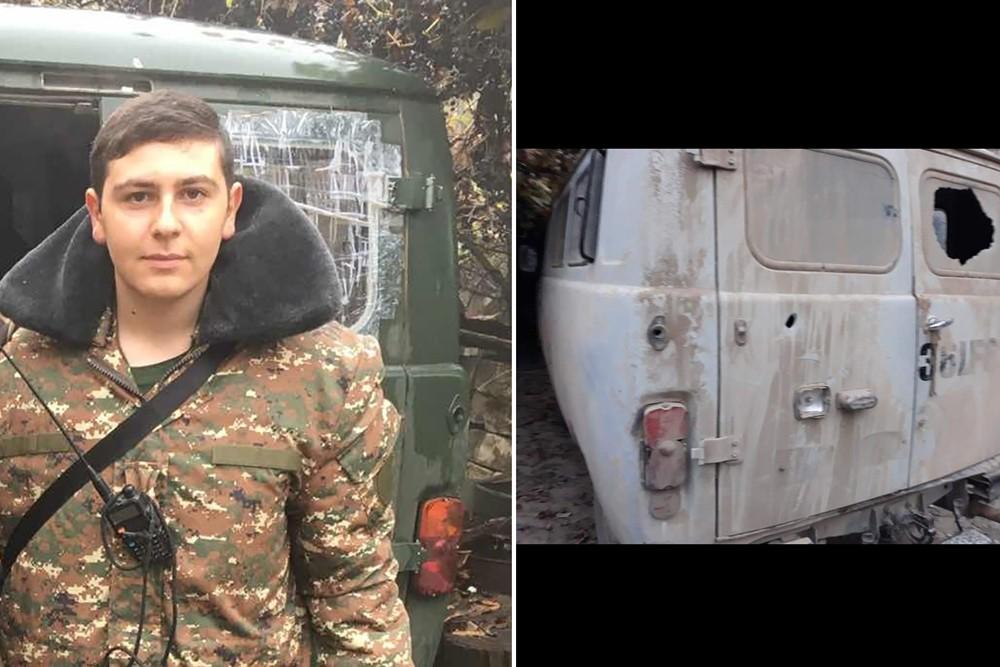
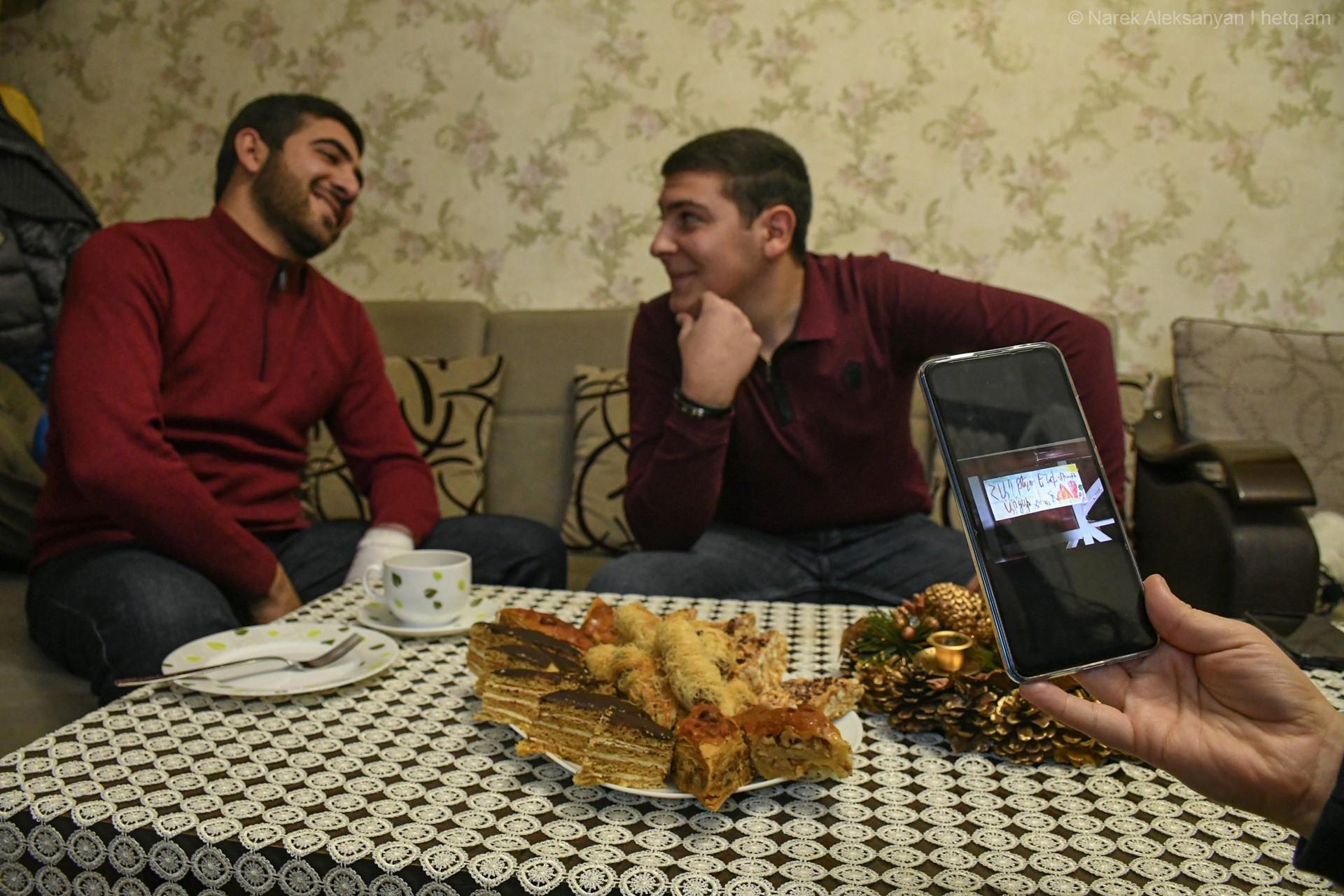
Write a comment